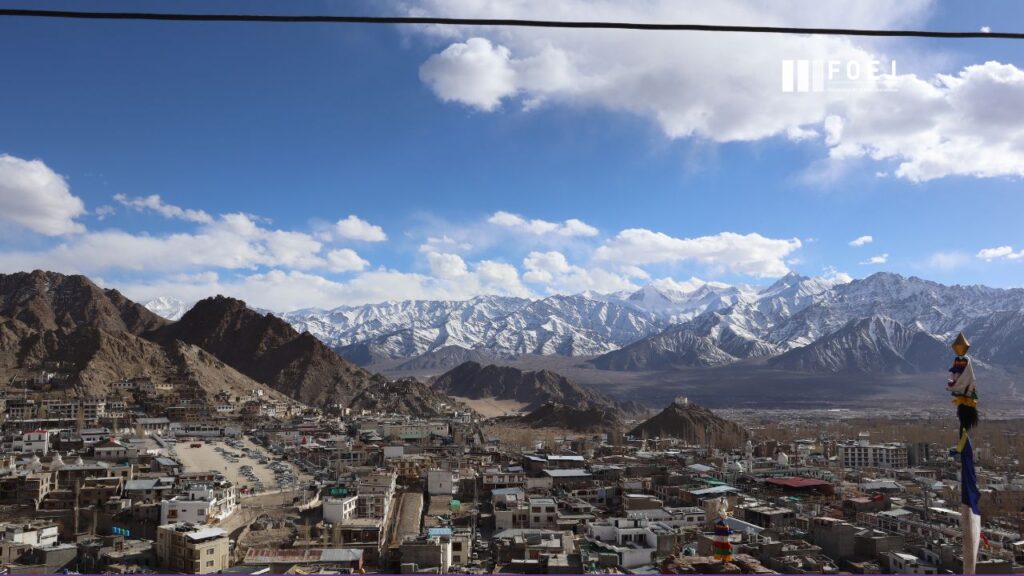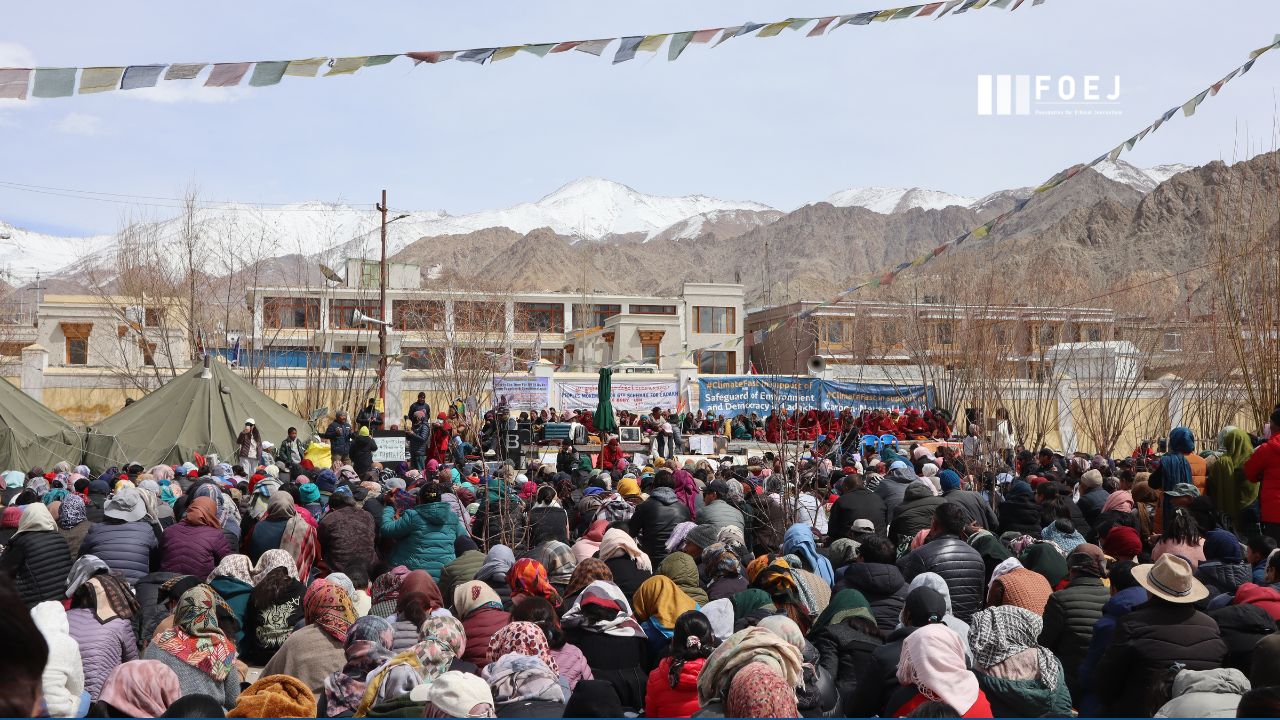In 2019, Ladakh was declared a Union Territory sans a legislature, a significant moment for its governance. The people of Ladakh initially received this news with optimism, fuelled by the central government’s assurances. The government promised to include Ladakh in the sixth schedule of the constitution to address its unique needs, which helped gain acceptance for its new status. However, nearly five years have elapsed, and the silence from the government is causing dissatisfaction among the people. The anticipated protections and provisions have not materialised, casting a shadow over the initial hope and leading to widespread protests for fulfilling those promises.
Unfulfilled Promises- From Hope to Discontent
A call to protect the environment, Sonam Wangchuk’s “climate fast” in Ladakh’s bone-chilling winter underscored the need for constitutional safeguards, attracting global support and highlighting the fragility of Ladakh’s ecosystem. The Sixth Schedule of the Indian Constitution provides a unique governance framework to assure autonomous self-governance within certain Indian states, primarily for tribal areas. It delineates powers for Autonomous District Councils (ADCs) to legislate on land, forests, agriculture, and water resources, thus safeguarding tribal laws, customs, and rights over their ancestral domains.
Ladakh’s plea for inclusion under this schedule emanates from a deep-seated apprehension towards external encroachments and overdevelopment that threaten its indigenous identity and ecological sanctity. The region’s intricate social fabric and fragile environment stand at a precipice, risked by rapid infrastructural expansions and demographic alterations. The Sixth Schedule provides a way for the people of Ladakh to safeguard their land and traditions while also managing their development and preserving the balance between their cultural heritage and environmental conservation. This inclusion acts as a barrier against any unwanted interventions from external forces.

Autonomy, Environment, and Tourism’s Toll
The development dilemma between economic growth and environmental preservation has been profoundly disrupted in the intricate dynamics of Ladakh’s booming tourism industry with a stark growth trajectory. Undoubtedly, it has been an exponentially growing industry, yet the collateral damage to the environment and heritage is discernible. T
he impact of the high footprint on Ladakh’s delicate ecosystem highlights a worrying trend towards environmental degradation, water scarcity, and a loss of sustainable traditional livelihoods to accommodate growing economic interests. This environmental upheaval extends to the sinews ecological and cultural framework. The relentless encroachment through development initiatives poses a challenging threat to the region’s mountains, glaciers, and water bodies.
The transformative effect on traditional ways of living is equally significant, with the influx of tourists and commercial endeavours eroding the fabric of indigenous practices and knowledge systems. These developments not only obscure sustainable practices but also endanger local communities’ livelihoods and long-term sustenance.
Geopolitically, Ladakh’s strategic importance infuses an added layer of complexity. The region’s location, abutting contentious borders, intensifies the risk of territorial conflict exemplified by the deadliest India-China confrontation in over 40 years in Galwan Valley in 2020. Even though the government claims all is well, locals have a different take. Current unrest aggravates security issues, framing Ladakh’s situation within a broader geopolitical context that underscores the perilous balance between national interests and local well-being.
The influx of tourists and external interventions threatens the traditional wisdom and indigenous environmental mitigation strategies in Ladakh. This surge strains the ecological balance and threatens the cultural heritage, accelerated by corporate land acquisitions for profit-driven enterprises. Including Ladakh in the Sixth Schedule promises constitutional protection to these lands. It empowers local bodies to regulate resources and land ownership, safeguarding against the unbridled expansion of commercial interests. It is a crucial step towards preserving the region’s indigenous environmental practices and cultural integrity against economic exploitation and cultural dilution.









